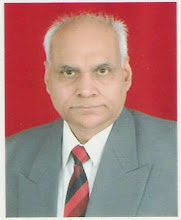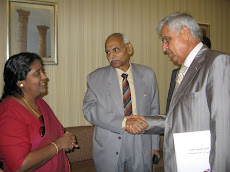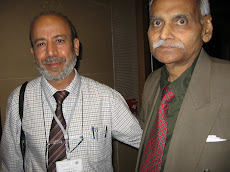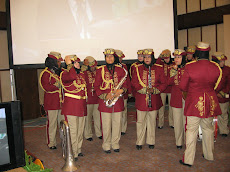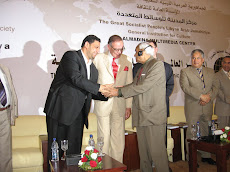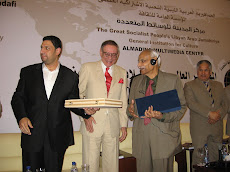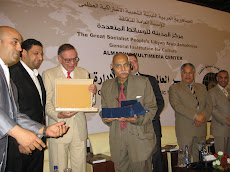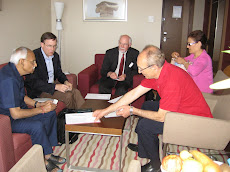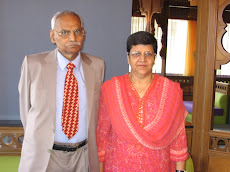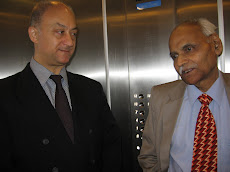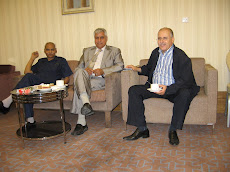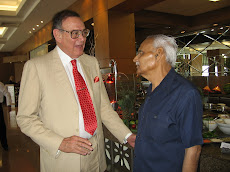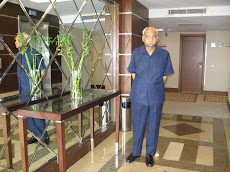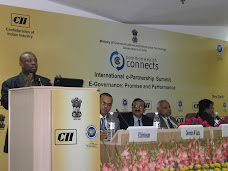1. Public Access to All Congressional Research Service Reports (Legislative Branch)
2. Information About the Use of TARP and Bailout Funds (Executive Branch)
3. Open and Accessible Federal Court Documents Through the PACER System (Judicial Branch)
4. Current Contractor Projects (Executive Branch)
5. Court Settlements Involving Federal Agencies (Judicial Branch)
6. Access to Comprehensive Information About Legislation and Congressional Actions via
THOMAS or Public Access to Legislative Information Service (Legislative Branch)
7. Online Access to Electronic Campaign Disclosures (Legislative Branch)
8. Daily Schedules of the President and Cabinet Officials (Executive Branch)
9. Personal Financial Disclosures from Policymakers Across Government (All Branches)
10. State Medicaid Plans and Waivers (Executive Branch)
Check the full report at
http://cdt.org/righttoknow/20090320_TopTenReport.pdf
Dr D.C.Misra
Showing posts with label 2009. Show all posts
Showing posts with label 2009. Show all posts
Thursday, April 02, 2009
Friday, February 20, 2009
Presentation on "Emerging Challenges of E-governance 2009"






This is a PowerPoint presentation made by me in a public lecture on "Emerging Challenges of E-governance Today" delivered by me on Friday, February 20, 2009, at 5-30 p.m. at Indian Institute of Public Administration, Indraprastha Estate, New Delhi-110 002. His Excellency Mr Zadi Gbaka Richard, Ambassador of the Republic of Cote d'Ivoire to India was the Chief Guest on the occasion. This is an annual stock-taking of e-governence which I have been undertaking for last few years. For any clarification, feel free to contact me at dc_misra [at]hotmail.com.
Monday, December 22, 2008
Misra, D.C. (2009): 2009 Top Ten IT Books
This is a list of ten information technology (IT) general interest books (as distinct from technical books and DIY manuals) reviewed cumulatively at the end of year 2008 and covers a wide variety of subjects ranging from atoms and bits to human consciousness. The review finds that no book qualifies to be called a classic and an IT classic of general interest is yet to be written. The list will be of interest to general readers.
Misra, D.C. (2009): 2009 Top Ten IT Books
This is not a list of top ten information technology (IT) books published during 2008 nor a list based on any objective criterion (like number of copies sold). It is a list of top ten IT books at the end of the year 2008. The books are also of general interest, that is, non-technical IT books and the list excludes DIY manuals and technical texts. The only criterion of selection I have used is that the book should have excited me when it came to my notice for the first time and sustained my interest in reading it. When I decided to prepare the list, I did not realize that the task was so difficult, for I would have loved to include many more books but couldn’t due to limitation on number! So here is my list, subjective as it is:
1. Negroponte, Nicholas (1996): Being Digital, London, Hodder and Stoughton. First published in 1995. (Told me about the difference between atoms (physical world) and bit (electronic world).
2. Gates, Bill with Nathan Myhrvold (1995): The Road Ahead, London, Penguin. (The first visionary account of IT I read by Gates Version 1.0 when he was an IT missionary. Gates Version 2.0 turned out to be a pure businessman).
3. Dertouzos, Michael L. (1997): What Will Be: How the New World of Information Will Change Our Lives, New York, Harper Collins (A guide to the future speculating about wide varieties of technologies and gadgets. It has a chapter on government too).
4. Gilder, George (2000): Telecosm: How Infinite Bandwidth Will Revolutionize Our World, New York, The Free Press (The first book which told me about the telecom infrastructure, particularly fibre-optic cables and subsequent promise of availability of cheap bandwidth).
5. Hafner, Katie and Matthew Lyon (1996): Where Wizards Stay Up Late: The Origins of the Internet, New York, Simon and Schuster. (The first “definitive” history of the origin of Internet I read which kept me awake too.).
6. Brooks, Frederick (2000): The Mythical Man-Month: Essays on Software Engineering, Addison Wesley Longman. Anniversary edition. First published 1975. (The fact that it was widely quoted aroused my curiosity and when I read it I found it pure gold!).
7. Raymond, Eric S. (2001): The Cathedral and the Bazaar: Musings on Linux and Open Source by an Accidental Revolutionary, Sebastopol, CA, O’Reilly. Revised edition. First published 1999.(All about hackerdom and propriety versus open source debate).
8. Moody, Glyn (2001): Rebel Code: How Linus Torvalds, Linux and the Open Source Movement Are Outmastering Microsoft, London, Penguin (A thrilling history of open source movement).
9. Himanen, Pekka (2001): The Hacker Ethic and the Spirit of the Information Age, London, Random House. (All about hackerism by an author who got his Ph.D. at the age of 20 years!).
10. Penrose, Roger (1994): Shadows of the Mind: A Search for the Missing Science of Consciousness, London, Random House. First published in 1994. (All about human consciousness and the still continuing debate about man versus computer by a powerful mind).
Does any book qualify to be called a “classic,” a book which does not date and invites you to be read again? I am afraid not. The nearest a book goes to the level of a classic is Brooks’ Mythical Man-Month but the book has become out of date. No other book attracts you to be read again, their arguments, insights, etc. having become familiar and thus uninviting. Note also that no book published during last seven years (2002-08) figures in the list. Is it a sign of a decline in creativity? It appears that an IT classic is yet to be written. Any takers?
Have a Merry Christmas and a Happy New Year.
Dr D.C.Misra
December 22, 2008
Misra, D.C. (2009): 2009 Top Ten IT Books
This is not a list of top ten information technology (IT) books published during 2008 nor a list based on any objective criterion (like number of copies sold). It is a list of top ten IT books at the end of the year 2008. The books are also of general interest, that is, non-technical IT books and the list excludes DIY manuals and technical texts. The only criterion of selection I have used is that the book should have excited me when it came to my notice for the first time and sustained my interest in reading it. When I decided to prepare the list, I did not realize that the task was so difficult, for I would have loved to include many more books but couldn’t due to limitation on number! So here is my list, subjective as it is:
1. Negroponte, Nicholas (1996): Being Digital, London, Hodder and Stoughton. First published in 1995. (Told me about the difference between atoms (physical world) and bit (electronic world).
2. Gates, Bill with Nathan Myhrvold (1995): The Road Ahead, London, Penguin. (The first visionary account of IT I read by Gates Version 1.0 when he was an IT missionary. Gates Version 2.0 turned out to be a pure businessman).
3. Dertouzos, Michael L. (1997): What Will Be: How the New World of Information Will Change Our Lives, New York, Harper Collins (A guide to the future speculating about wide varieties of technologies and gadgets. It has a chapter on government too).
4. Gilder, George (2000): Telecosm: How Infinite Bandwidth Will Revolutionize Our World, New York, The Free Press (The first book which told me about the telecom infrastructure, particularly fibre-optic cables and subsequent promise of availability of cheap bandwidth).
5. Hafner, Katie and Matthew Lyon (1996): Where Wizards Stay Up Late: The Origins of the Internet, New York, Simon and Schuster. (The first “definitive” history of the origin of Internet I read which kept me awake too.).
6. Brooks, Frederick (2000): The Mythical Man-Month: Essays on Software Engineering, Addison Wesley Longman. Anniversary edition. First published 1975. (The fact that it was widely quoted aroused my curiosity and when I read it I found it pure gold!).
7. Raymond, Eric S. (2001): The Cathedral and the Bazaar: Musings on Linux and Open Source by an Accidental Revolutionary, Sebastopol, CA, O’Reilly. Revised edition. First published 1999.(All about hackerdom and propriety versus open source debate).
8. Moody, Glyn (2001): Rebel Code: How Linus Torvalds, Linux and the Open Source Movement Are Outmastering Microsoft, London, Penguin (A thrilling history of open source movement).
9. Himanen, Pekka (2001): The Hacker Ethic and the Spirit of the Information Age, London, Random House. (All about hackerism by an author who got his Ph.D. at the age of 20 years!).
10. Penrose, Roger (1994): Shadows of the Mind: A Search for the Missing Science of Consciousness, London, Random House. First published in 1994. (All about human consciousness and the still continuing debate about man versus computer by a powerful mind).
Does any book qualify to be called a “classic,” a book which does not date and invites you to be read again? I am afraid not. The nearest a book goes to the level of a classic is Brooks’ Mythical Man-Month but the book has become out of date. No other book attracts you to be read again, their arguments, insights, etc. having become familiar and thus uninviting. Note also that no book published during last seven years (2002-08) figures in the list. Is it a sign of a decline in creativity? It appears that an IT classic is yet to be written. Any takers?
Have a Merry Christmas and a Happy New Year.
Dr D.C.Misra
December 22, 2008
Subscribe to:
Posts (Atom)




